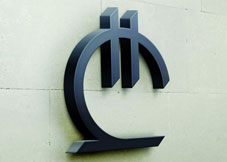
Georgian National Bank increases its key policy rate to 5%
By Ana Robakidze
Friday, May 8
The Georgian National Bank announced on May 6 that it was increasing the refinancing rate by 50 basis points to 5%. At the same time the interest rate for the standing refinancing loans increases to policy rate plus 150 basis points. The decision was made at the Monetary Policy Committee (MPC) meeting.
“Due to the GEL depreciation, the inflation expectations have risen, which can be reflected in the risks of the inflation deviating from its target level in the medium term. Therefore the Monetary Policy Committee considers it necessary to increase the monetary policy rate gradually to 5.5 percent by the end of the year.” MPC said in the statement.
Annual inflation stood at 2.5% in April, below the central bank’s target level 5%, but the constant depreciation of the Georgian Lari (GEL) increased inflation expectations, therefore increasing the risk of the inflation deviating from its target level in the medium term.
“The NBG will continue to monitor the developments in the economy and financial markets and will use all means and instruments at its disposal to ensure price stability. The dynamics of further changes in monetary policy will depend on the dynamics of expected inflation, tendencies in economic growth, global and regional economic environment. The next meeting of the Monetary Policy Committee will be held on July 1, 2015.” the statement reads.
Increased refinancing rate will have an immediate negative impact on Georgian citizens, as it will automatically increase interest rates on loans with commercial banks. According to preliminary data around 7500 Georgians will have to pay increased interest rate on their loans.
Georgia has major financial problems caused by decreased foreign direct transfers, lack of foreign investments and declining exports and a falling number of tourists. The GEL has been losing its value since November 2014 and currently its rate against USD is 2.32, which is already causing an impact on import demand.


